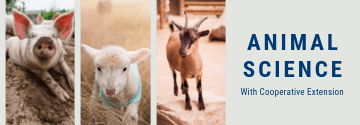Putting Antibiotic Use in Perspective
It’s gratifying to find a beacon of reality among the rhetoric about antibiotic resistance, but you (and consumers) really have to search for it.
The Center for Accountability in Science explains, “Though farms use a lot of antibiotics, many are never or rarely prescribed to humans. Thirty percent of antibiotics used on farms are from a class called ionophores, which can be deadly to humans and some animals… There’s no firm evidence that antibiotic resistance in humans is linked to antibiotic use in farm animals.”
Though Denmark has very strict limits on antibiotic use in livestock, the Center says “consumption of meat may currently be considered an insignificant source for the human infections” of food-borne illnesses like E. coli. Three recent studies show that only .27% of antibiotic-resistant E.coli infections can be linked to meat, while 99.73% of those infections are associated with antibiotic use in humans.”
Failure to Finish Prescriptions is a Problem
Dr. Joseph Perrone, who served as an adviser to the World Health Organization, says, “It’s not just over-prescription that poses a problem. Even when antibiotics are prescribed appropriately, too often patients fail to finish the full course of antibiotics once they begin to feel better—or when they’re sick of dealing with the drugs’ side effects such as nausea and vomiting. Failure to finish the full dose means that some of the bacteria may survive. In some cases, the body’s natural defenses will kick in and fight the remaining bacteria. For others, the remaining bacteria can develop resistance to the antibiotic prescribed.”
Examples published in Emerging Infectious Disease, illustrate patient perceptions about antibiotics in patient care: 27% believed taking antibiotics during a cold made them better; and 48% expected antibiotics when seeking medical care associated with a cold. Rather than risk having a patient go to a different doctor, some doctors will go ahead a prescribe an antibiotic, even when they know that’s not what the patient needs.
“Antibiotics are important for an animal’s health and well-being,” says Dr. Justin Bergeron with the University of Minnesota Center for Animal Health and Food Safety. “When humans are sick, we need to take the appropriate medication to get better. Animals have the same need.”
Truthful Information Needed
Both animal and human health experts are diligent in helping disseminate a balanced understanding of the antibiotics issue to consumers.
But it’s not enough.
Every time you talk with your non-farming friends, health-care providers, children’s teachers, or anyone else, share the facts about antibiotic resistance. Begin a dialogue. Help them realize it’s everyone’s obligation to use antibiotics responsibly to protect and maintain the health of both human and animal populations.


